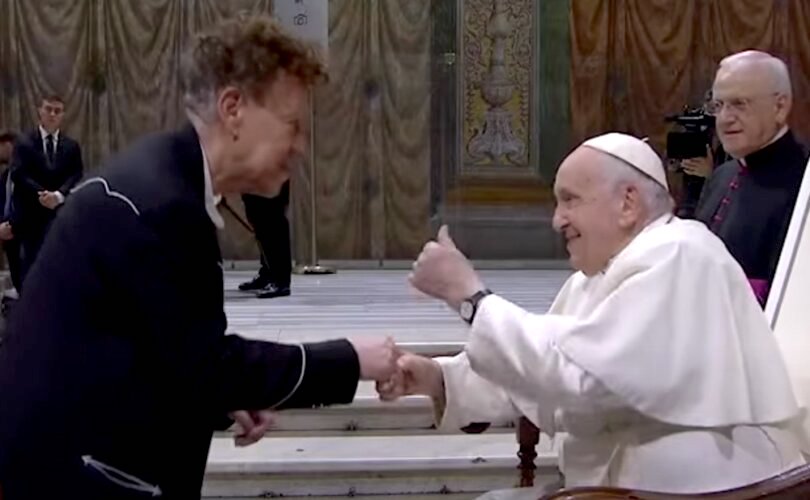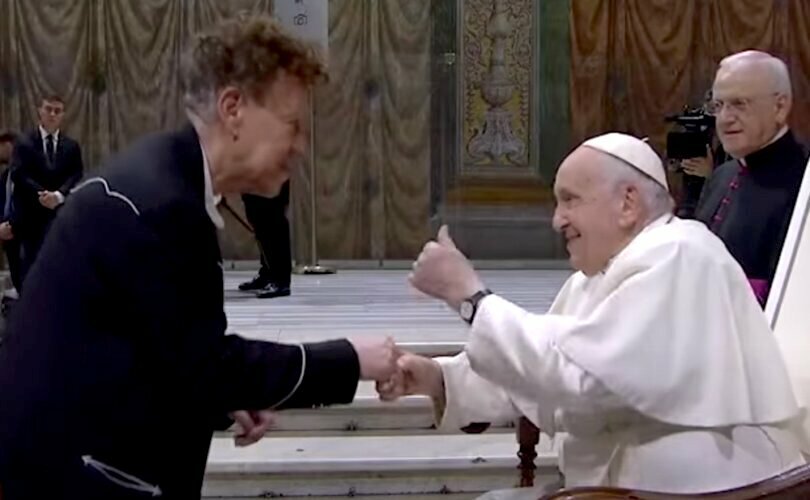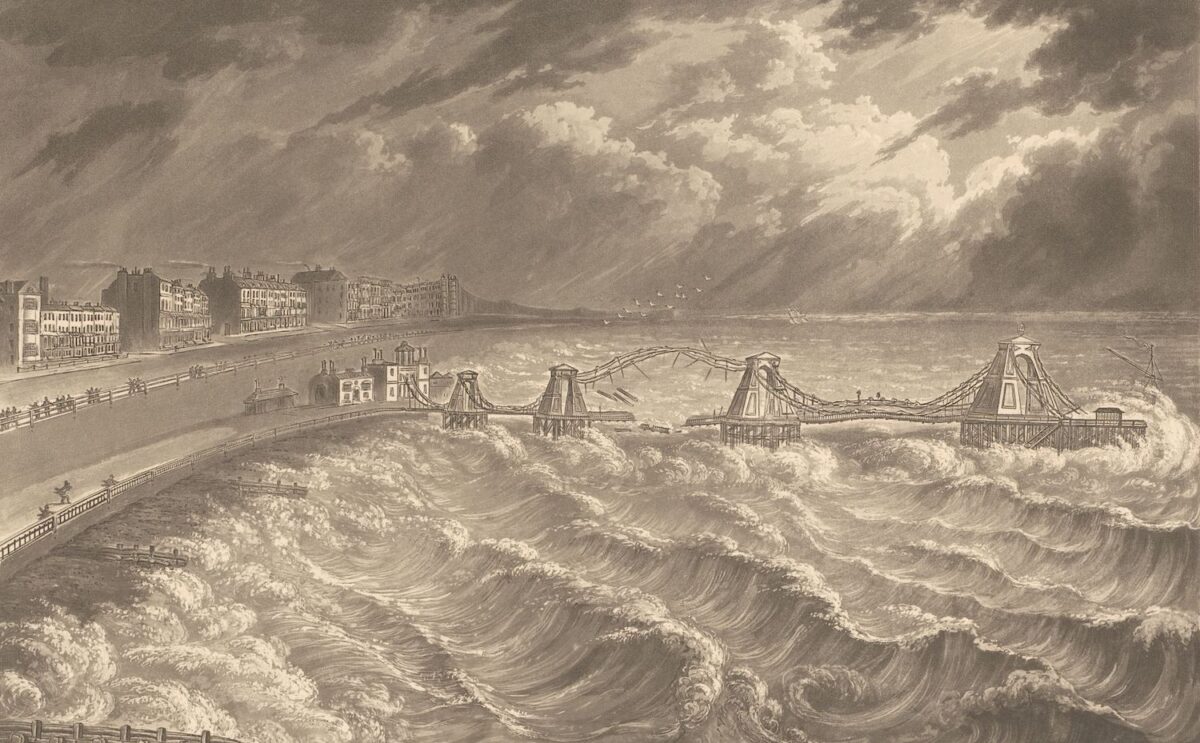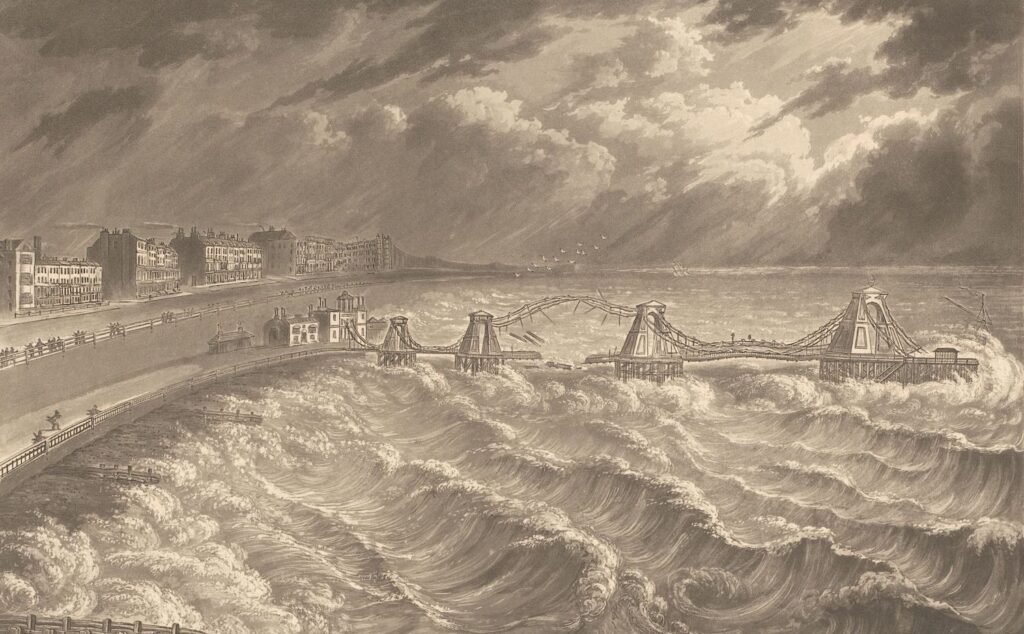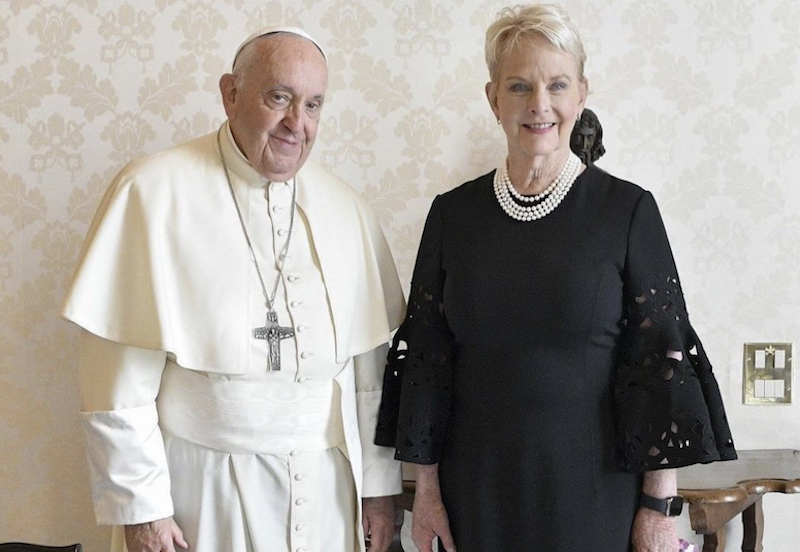Rod Dreher, who was born to a Methodist family in Louisiana, converted to Roman Catholicism in the 1990s and Eastern Orthodoxy in the 2000s, provides his own personal autopsy of Romanism - Dreher was a typical cradle Protestant who went over to the RCC to find some conservative certainty, only to be disappointed (even though he is actually a quite wimpy cuckservative, who occasionally finds a little bit of backbone and insight):
This is how Francis changes doctrine without changing doctrine. If you have lost the culture, neither canon law nor tradition can hold back the flood.

europeanconservative.com
Francis Breaks the Dam Holding Back Liquid Modernity
This is how Francis changes doctrine without changing doctrine. If you have lost the culture, neither canon law nor tradition can hold back the flood.
“It’s like this,” said the Catholic man sitting across the table from me at dinner. “The Church made the papacy so strong in the 19th century, with the first Vatican council, to turn itself into a citadel to hold out against modernism. Nobody ever imagined that the papacy could be captured by a man like Francis. Now the pope is the agent of the Church’s destruction.”
This man was born during the Second Vatican Council. He has lived as a Catholic through the slow, steady collapse of the Catholic faith throughout the West. It’s a collapse that conservative (or orthodox; they aren’t necessarily political conservatives) Catholics lamented, of course. But they could console themselves with the faith that Rome would never teach error and that the doctrine of the Faith would always be preserved. The provinces may fall to the barbarians of liberalism, but the center would hold. It had to.
Since he ascended the Petrine throne in 2013, Pope Francis has been chipping away at settled Catholic orthodoxy while at the same time pretending not to be. There have been popesplainers eager to assure the faithful that what looks like heresy, or some other bad thing, is not really what it seems like. It goes something like this: If you measure the pope’s words by a subparagraph of the Summa, divided by the 1917 Code of Canon Law, and sift it through the footnotes of Father Garrigou-Lagrange, then you’ll see that what the pope really meant was basically fine—if you squint.
The most divisive issue by far in Western churches today is how to deal with homosexuality. It has split most Protestant churches, but within Western countries and globally.
The Anglicans of Africa, for example, earlier this year declared that they no longer recognize the Archbishop of Canterbury as their spiritual head and called on him to repent. Though the Catholic Church is still on record considering homosexuality to be gravely sinful, Francis has encouraged liberalizing pro-gay forces within the Church.
He has repeatedly and publicly blessed the work of LGBT advocate and Jesuit priest James Martin, appointed pro-gay liberals to major sees, and made them cardinals. It has been clear where Francis was going with this, but orthodox Catholics held on to a sliver of hope when, in the face of German episcopal efforts to institute same-sex blessings in the Church, Francis
said in 2021 that God “cannot bless sin.” Indeed,
in 2003, Cardinal Joseph Ratzinger, writing with the explicit approval of Pope John Paul II, said explicitly that “under no circumstances can [homosexual acts] be approved.” Though gays and lesbians must be respected, this respect “cannot lead in any way to approval of homosexual behavior.”
That was then. In an answer to five
dubia, or requests for theological clarifications submitted by a group of cardinals, Francis
said it is possible for priests to bless same-sex unions under certain circumstances. If an individual priest discerns that same-sex couples may benefit from such a blessing, and the priest can offer it without it being mistaken for a version of marriage, then it can be permissible.
In other words, God can actually bless sin under certain circumstances.
It appears to be a modest move, but it is modest in the sense that drilling a small hole into a dam holding back a vast lake is modest. This is, in fact, a sea change in Catholic theology, and no amount of fussy theological parsing can mask its revolutionary effect.
The late American sociologist Philip Rieff noted at the beginning of the Sexual Revolution that the rejection of sexual individualism was near the core of the Christian concept of society. This was now breaking, said Rieff back then, gently mocking Christian clergy who tried to pretend otherwise. Fifty years later, the Roman pontiff, by creating the possibility of blessing something that Scripture and two thousand years of Christian tradition teach is gravely sinful, has now shattered it, at least for Catholics.
In Western European countries, where homosexuality has long been normalized and many priests and bishops long to bless same-sex couples, the pope has given free reign, as long as national churches observe the pretense that this is not a system-wide policy change but only a pastoral act from one priest to his parishioners. Same-sex blessings will soon become the norm.
In the United States, where a strong majority of Catholic laity approve of homosexuality and of same-sex marriage, there remains a significant minority opposed to this in principle. They have been sold out by the Roman pontiff. Any priest who declines a request to bless a same-sex couple will face opprobrium from many in his congregation. “But Father, the pope said it’s okay,” they will protest.
If the couple goes to the media, which is what often happens in the United States, public sentiment will turn against that priest. Based on past performance, most bishops are spineless and will go to great lengths to make the problem go away. Those priests will become pariahs. Given that many of the younger U.S. priests are theological conservatives inspired by the orthodox pontificates of John Paul II and Benedict XVI, and given that younger American Catholics overwhelmingly support liberalizing on LGBT matters, the pontiff has just made life very, very difficult for these men.
In the U.S., at least, it’s not just priests. America has strong constitutional protections for religious liberty. But judges are not theologians. If gays bring a discrimination complaint against a church or religious institution, courts will ask what the church in question teaches about homosexuality and if the institution has defended that teaching when challenged. Until now, Catholic schools and institutions have been able to rely on the Church’s clear doctrinal teaching as a strong defense in court. That’s gone now, or will be when same-sex blessings become common in parishes.
This is how Francis changes doctrine without changing doctrine. If you have lost the culture, neither canon law nor tradition can hold back the flood.
A conservative Catholic convert friend in the U.S. tells me that he cannot get through to his cradle-Catholic friends how quickly things are about to change in the Church. As a former Episcopalian, he saw that sexual liberalism, once permitted simply as a tolerant and inclusive pastoral response to gay and lesbian communicants, rapidly became the new orthodoxy, and any dissenters were marginalized as bigots. The process has worked this way in every Mainline Protestant church. There is no reason to think it won’t play out according to the same script among Catholics now that the pope has crossed the lavender Rubicon.
No Christian, however fervent in their Protestant or Orthodox convictions, has the right to gloat over what is happening to the Catholic Church now. In the United States, evangelicals have long been far more conservative on sexual matters than U.S. Catholics, but that is now changing. It remains to be seen how the large evangelical and charismatic populations in Latin America respond to the LGBT challenge, but their broader societies are fast liberalizing.
The Orthodox churches remain stalwartly conservative on the issue, but there are small but well-funded activists within those churches pushing for liberal change. Besides, Orthodox don’t live in a world separate from society. Without strong countercultural catechesis and formation, the Orthodox laity will go the same way as everybody else.
It is impossible, though, to overstate how significant it is that the Catholic Church is finally breaking on this issue. Francis DeBernardo, a leading Catholic gay-rights activist,
told The New York Times that the pope’s move “will have a tremendous effect on pastoral practice and church life.”
He added, “When pastoral ministers encouraged by the pope start blessing same-gender couples, it is going to normalize same-gender relationships in church life.”
True. Think about it: at no time in Church history could you walk into a Catholic church and see a same-sex couple approach the altar to receive a blessing. It is now happening in churches in Germany and the Low Countries and is now about to be everywhere throughout the West. Soon, it will be the most normal thing in the world. Children raised in Catholic churches will look upon their parents, who object to same-sex blessings, as old-fashioned bigots who think they’re more Catholic than the pope.
I am not a Catholic, but I am a man of the West, and as such, I recognize the Roman Catholic Church as the preeminent Western institution. The moral and spiritual health of Western civilization is inextricably tied to the health of the Catholic institution. During the 1990s, many Protestants, grieved by the liberal changes sweeping over their churches, looked with admiration and even envy at Catholics, led by the vigorous, orthodox, and charismatic John Paul II.
And now John Paul’s successor, Francis, is leading that same church down the path of destruction well trod by the Church of England, the Episcopal Church, and other once-dominant Mainline churches. When the world’s largest church shifts like this, it is an earthquake that shakes all the world’s churches, whether all the world’s Christians know it or not. The tsunami that will follow the shaking will wash away so many things once thought permanent.
“We are in uncharted waters,” said my dinner companion morosely. True. Now is the time for all Christians—Catholics and otherwise—to build arks. This is what I proposed in my book
The Benedict Option six years ago, and the rise of
liquid modernity’s floodwaters has only quickened.
...


